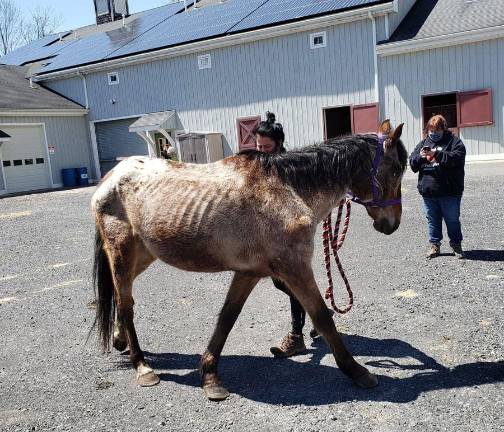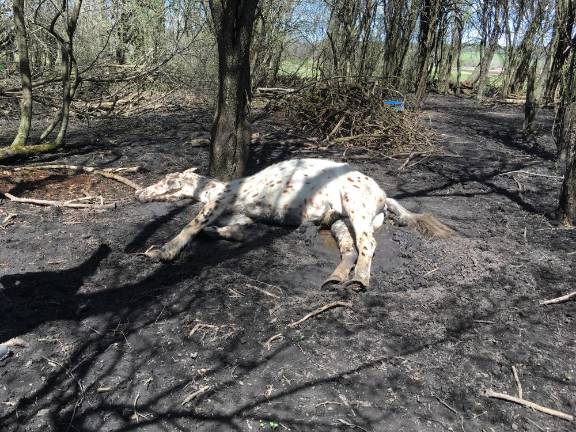Two horses starved in Goshen - one died, one saved
Pedro G. Rodriguez was charged with two misdemeanors, one for each starved horse.


On May 2, Gene Hecht, with Hudson Valley Humane Law Enforcement, found that Pedro G. Rodriguez had left two Appaloosa horses, a male and a female, in a fenced and gated area without food and water. The area at 41 Jessup Switch Road in Goshen was littered with beer cans and broken bottles. Jamie Conley owns the property, and her attorney had sent Rodriguez a letter saying she wanted him off the property.
One horse was dead. The other, named Cailan by rescuers, was so weak he was unable to stand. Those present the day he was picked up said he made his “freedom walk.”
Hecht said the barely alive horse was “days away from death.” The Town of Goshen police, the Catskill Veterinary Hospital, the Rhinebeck Equine Hospital and Pets Alive in Middleton also assisted Hecht. Rhinebeck Equine Veterinarians rehabilitated the near dead horse.
On February 28, in Goshen Town Court, with Assistant District Attorney Rob Middlemiss present, the judge charged Rodriguez with two misdemeanors, one for each starved horse. Rodriguez will again be in Goshen Town Court on April 18th as the case moves forward.
Middletown’s Pets Alive Executive Director Becky Tegze told The Chronicle: “A living hell is the only way to describe what we witnessed that day, no grass for grazing, no water to drink, and thin wire fencing holding them prisoners just inches away from life-saving grass. For the beautiful mare, we were too late. Visible in the black dirt, we saw where she had struggled once she had gone down. I can’t even imagine the mental agony they suffered being able to see life-saving grass and unable to reach it as they starved.”
“A living hell is the only way to describe what we witnessed that day, no grass for grazing, no water to drink, and thin wire fencing holding them prisoners just inches away from life-saving grass. For the beautiful mare, we were too late. Visible in the black dirt, we saw where she had struggled once she had gone down. I can’t even imagine the mental agony they suffered being able to see life-saving grass and unable to reach it as they starved.”- Becky Tegze